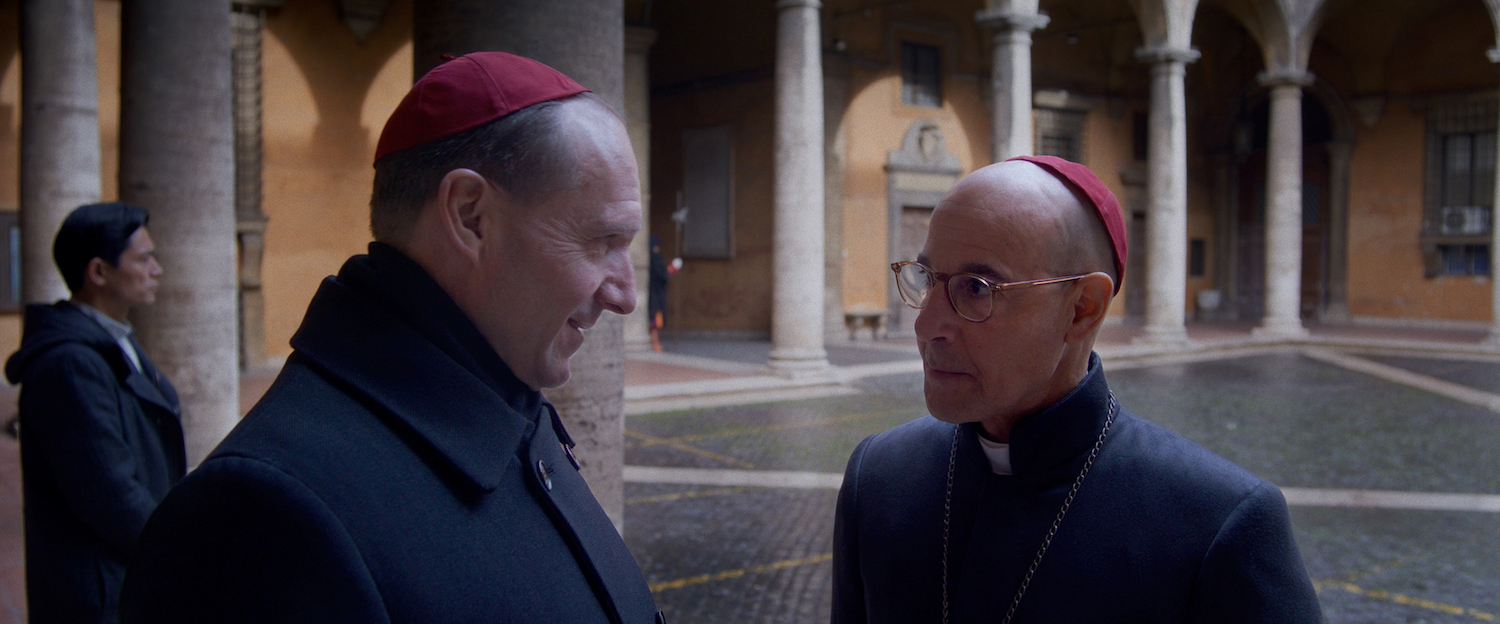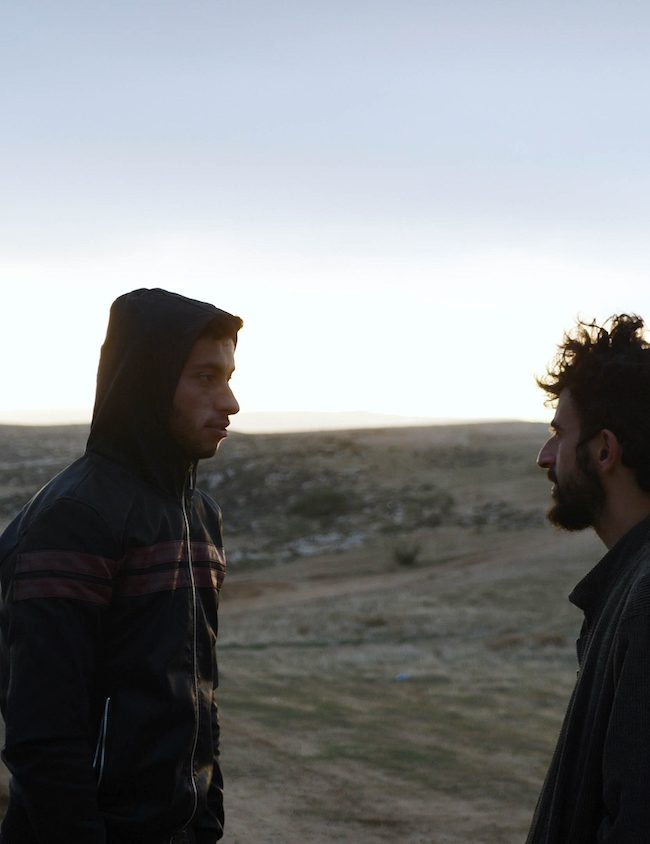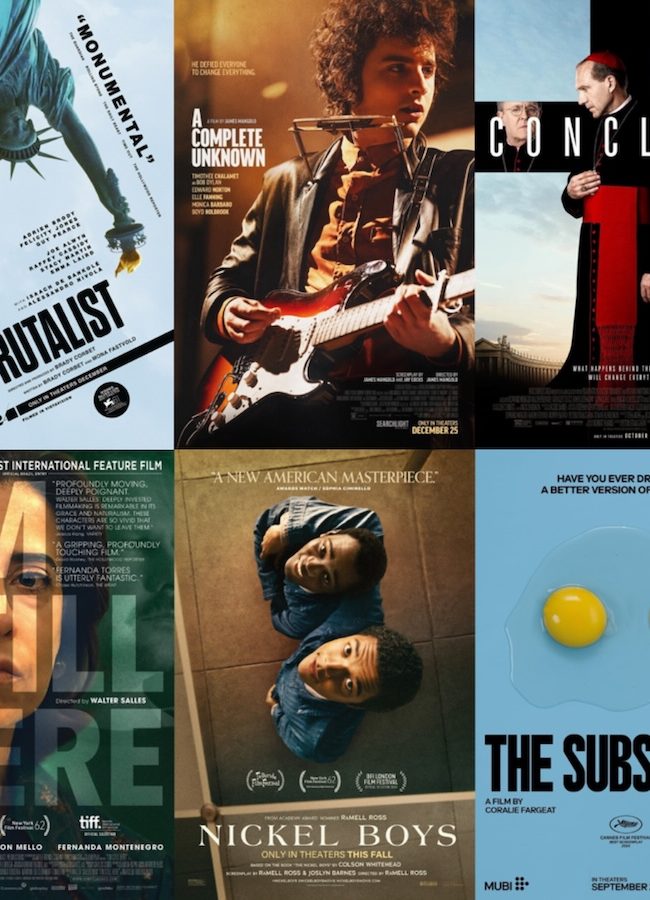
(The 2024 Middleburg Film Festival runs October 17-20. Check our Chris Reed’s Conclave movie review. Seen it? Join the conversation with HtN on our Letterboxd Page.)
Every time a Pope dies, Catholics around the world no doubt find themselves both mourning the loss and intrigued about who (or what) comes next. Will there be changes in doctrinal policy, whether a return to tradition or a shift towards novel ideas? Or will the status quo prevail, whatever that happens to be at the moment? In addition, the question of representation from among the great diversity of faithful across the globe has recently become part of the equation, as well.
In Conclave, an adaptation of Robert Harris’ 2016 book of the same name, director Edward Berger (All Quiet on the Western Front) tackles the surprisingly thrilling mystery (for nonbelievers, anyway) of a papal conclave, which sees the College of Cardinals gather to choose the next pontiff. Featuring a powerful cast of heavy dramatic hitters—plus one fresh face—the movie engages from the first scene and never lets up. The Church may often seem out of step with the modern world (perhaps by design), but here its concerns have never appeared more urgent.
Cardinal Thomas Lawrence (Ralph Fiennes, The Menu) is the Dean of said College, and it is his job to guarantee that everything goes smoothly. Just three weeks after the pope’s death, with which the movie starts, the participants travel to Rome, among them some pretenders to the Vatican throne. Lawrence is not himself so ambitious. In fact, as we learn, he tried to resign from his position not too long ago, a request denied by the dearly departed. The late pope, as it turns out, knew what he was doing.
Pretty quickly, four Cardinals emerge as leading candidates, each one representing differing ideologies, from conservative to liberal. There’s the ultra-progressive Bellini (Stanley Tucci, Supernova), middle-of-the road Tremblay (John Lithgow, Beatriz at Dinner), and reactionary Tedesco (Sergio Castellitto, Mafia Inc), with Nigerian Cardinal Adeyemi (Lucian Msamati, See How They Run) an additional attractive choice given that there has never been a Black Pope. Unfortunately, his views on LGBTQ issues are to the far right, hence preventing the liberals from getting behind him.
Just as everyone is about to be sequestered—a requirement of the process—an unexpected new arrival shakes things up. That would be Benitez (newcomer Carlos Diehz), the Cardinal of Kabul. Originally from Mexico, he has long worked in disadvantaged and war-torn communities. His appointment to Afghanistan was kept a secret by the deceased, given the state of affairs in that country. But here he is now, and so he joins the conclave.
Though this is a strictly male affair, there are women on the periphery: the nuns who provide the food and cleaning services. They act as a constant reminder of the deep roots of the patriarchy, though their leader, Sister Agnes (Isabella Rossellini, Ingrid Bergman: In Her Own Words), proves capable of speaking up when the situation calls for it. For the most part, however, they fade quietly into the background.
Such is the setup. Meticulously crafted, the drama is quick to gather steam. Lawrence demonstrates able stewardship, even managing to surprise his fellow Cardinals with an opening speech in praise of doubt, declaring that the sin that has always bothered him the most is that of certainty, which he sees as the enemy of unity and tolerance. “Without doubt, what need have we of faith?” he asks. Lawrence is clearly in the Church’s’ reformist camp. After that humble query, however, ruthless politics and backstabbing take over. Men of God? Maybe. Men who crave power? For sure.
The back-and-forth of competing ideologies fascinates. As do the up-and-down fortunes of various pretenders. But the real battle is for the soul of this ancient religion, and source-material author Harris, screenwriter Peter Straughan (Our Brand Is Crisis), and director Berger have some significant narrative tricks up their talented sleeves. The result is a gripping examination of conscience and humanity, all wrapped up in a tantalizing riddle. The acting is superb, especially that of Fiennes, who brings to Lawrence both decency and, most importantly, doubt. Conclave may unsettle its protagonists, but we emerge with renewed belief in the power of cinema.
– Christopher Llewellyn Reed (@ChrisReedFilm)
Edward Berger; Conclave











